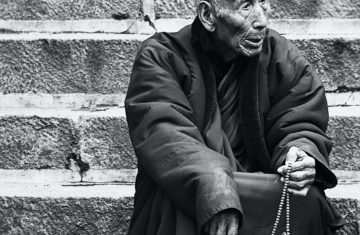Verse 17 teaches us yet another way to say no to your ego. It reads,
“Even if your peers or those below you put you down to make themselves look better, treat them respectfully as if they were your teacher; Put them above you- this is the practice of a bodhisattva.”
Verses 13-17 have all sought to teach us how to respond when others attack us. In this final verse in the section, we receive instruction on what might be the most common and inflammatory experience of them all: when someone insults us from “below.”
You know how it is. Someone who is no better than you at all, and perhaps far less smart or talented or capable, has the audacity to cut you down in front of other people. YOU! Who is far superior to this mansplaining know-it-all. How dare they?! Do they not know their place?!
And before you know it, you’re off to the races with your ego as the jockey. Get ready for a bumpy ride.
Ken McLeod writes, “When someone puts you down, usually the person you are most concerned about is you.” This is especially true if we somehow believe the person putting us down doesn’t have the “right” to do so. When we get caught up in this, we turn fully selfish. We lose all sense of humility and compassion.
Which is why this verse alludes to putting our teacher above us- “on our heads,” in some translations. This is an actual Buddhist practice of imagining your spiritual teacher to be looking out at the situation from above you. It’s meant to inspire your best response, because you want your teacher to see you acting from compassion. I find this a very practical thing to do when confronted with a talking-down situation. Can’t you feel your response shifting just by envisioning this? All of a sudden, coming back with a talking-down of your own doesn’t seem so wise.
I wonder if this little section of instructions ends with this because it is so common and so triggering for us. It’s perhaps the clearest way to see our ego at work. And for that reason, we can be thankful. Because it’s a glaring reminder of why we want to say no to our ego.



